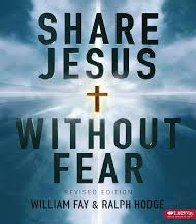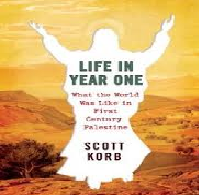Christian Evaluation of Current Approaches Order Instructions: The 4-MAT REVIEW system is a way of responding to readings, lectures, and life experiences that require the learner to interact with new ideas on several levels.

Please use the following format in preparing 4-MAT Book Reviews:
1. ABSTRACT. Summarize what you have read, boiling the book down into 400-600 words (no more than 2 pages). Prove you comprehend the readings by writing a no-nonsense summary. The abstract is not a commentary or listing of topics but rather an objective summary from the reader’s viewpoint. Abstract equals “boiled down.” This section should include a minimum of 2 footnotes to the text being reviewed.
2. CONCRETE RESPONSE. Get vulnerable! In no less than 250 words and no more than 1 page, relate a personal life experience that this book triggered in your memory. Relate your story in the first person, describing action, and quoting exact words you remember hearing or saying. In the teaching style of Jesus, this is a do-it-yourself parable, case study, confession. You will remember almost nothing you have read unless you make this critical, personal connection. What video memory began to roll? This is your chance to tell your story and make new ideas your own.
3. REFLECTION. This is the critical thinking part of the review (not critical in the sense of negative, but in the sense of questioning). In no less than 250 words and no more than 1 page, describe what questions pop up for you in response to what you have read. Keep a rough-note sheet at hand as you read. Outsmart the author by asking better questions than he/she raised in the book. Tell how the author could have made the book better or more appealing to those in your field of service. One way to begin this section is by stating what bothered you most about the book. This is not a place to provide an endorsement or affirmation of the book.
4. ACTION. So what are you going to do about it? In 400-600 words (no less than 1 page and no more than 2 pages) provide 2 actions that describe what changes you are going to make in your life, ministry, and/or work as a result of your reading. Actions should be measurable and reveal a commitment to specific time, specific people, and identified steps.
5. Please provide a Turabian style* title page, pagination, footnotes & Bibliography.
Books:
Banks & Ledbetter: chs. 4–6
Howell: chs. 3–7; Part 6 (pp. 295–301)
Malphurs: ch. 2
The paper is due on Sunday, September 6th, 2015 @ 7 am
Please do not plagiarize on this paper. It counts as 2 test grades, please.
Christian Evaluation of Current Approaches Sample Answer
Reviewing Leadership, a Christian Evaluation of Current Approaches
Abstract
The book published under the title “Reviewing Leadership, a Christian Evaluation of Current approaches” was prepared with the intention to create a connection or junction between two forms of leadership. On one had here is leadership as it is manifested in this day and age and on the other hand there is the Christian approach to leadership mainly based on scriptures and traditions that have been passed down in the church. The book is not authored with the aim of defining what the authors think leadership is. On the contrary, the book analyzes the concept of leadership as it is manifested in secular society. This leadership is then subjected to evaluation for the reader to better understand the points that the authors wanted to raise. The main factor that may have motivated the authors is the fact that today’s society is constantly looking for ways of appraising leadership in the public arena as well as in the private sector. The book takes a multi-dimensional perspective of this concept of leadership (Banks and Ledbetter, 2004).
A lot of consideration is given to the value system that is applied to leadership as well as the core components of what leadership is. The issue of a value system was considered to be very important by the book’s authors because it helps to form a basis from which leadership standards can be measured whether they exceed expectations laid or fall short of the same. The most suitable value system in the view of the authors was Christianity and specifically the worldview. Further motivation for this comes from the fact that leadership needs to be appraised relative to something as it can’t be independently measured. Besides the investigation of how leadership performs, the authors also go ahead to illustrate the different manifestations of leadership in society as brought out by various agents (Banks and Ledbetter, 2004). Within the Christian perspective, leadership is considered with respect to how it plays out in the church since this is an existent group of Christians who are moderated and led by an individual or group of individuals working in tandem towards the specific goals of the church. Given the fact that Paul was the first leader of the greater church, having spearheaded its spread beyond Jerusalem, his style of leadership and methods he used are given a lot of attention. How he led the individual churches and coordinated them makes him the ideal leadership model to consider when attention needs to be directed to the expectation for church leaders.
The manner in which this book’s topics are arranged as well as the language used make it possible for it to be understood and put into use by people in different positions whether they are leaders or not. Its structure and lessons are laid out in a way that can be applied to different areas of human interest be it religious, professional or informal settings such as one’s family or personal life.
Concrete Response
One of my most memorable personal experiences that came to mind as I was reading this book is my time as a member of the high-school football team. The specific thing about the book that made me think about my high-school athletics years was in the introduction where the authors detail the roles that a manager has within the organization. The book defines the manager not in the hierarchical sense but more from the perspective of the social role the individual given this job plays within the organization. The book defines the manager as a person who is mainly concerned with an interpersonal function within the group of people be it a company government department or even the church. The connection between this definition of a manager and my time in high-school is the team captain we had in the football team. I don’t remember him because of the way the team used to perform but mostly because of the dedication he always demonstrated both during practice and in the competitive games.
Like any other football team, we had an offensive department and a defensive department. He was the fullback and this meant he had to stay behind the offensive line. During training he fixed himself in other positions including many that disadvantaged him, so as to ensure all the team members are communicating with each other and everyone knew what they were supposed to do. For a long time I never understood why he never simply gave attention to the most promising players who in my view would have won all games for us. He always stressed the importance of communication on and off the pitch. Most of the players failed to take this to heart but now that I have seen the definition of a manager, I feel the captain was doing a tremendous job administrating the football team.
Christian Evaluation of Current Approaches Critical Reflection
This book is relatively well written but there are two issues that have been on my mind since I started reading it. These are the issue of conflict of interest on the part of the leader and the second issue I had questions about is about individualism. I am curious to find out individualism is something that negatively impacts leadership or actually enhances it.
From the Christian point of view, being a leader essentially means going out to serve those who are being led. This means that many of the actions that the leader will engage in within his or her leadership position are outward and evident to many, especially those being led. It is difficult to accurately discern the motivation behind the leaders’ actions when they do them, especially what can be considered to be positive. Perhaps the motivation that drives these leaders is a personal stake they may have in the end result. Within the corporate world there are often a series of monetary and non-monetary forms of appreciation for leaders who excel at their jobs. At times the reward is recognition and acknowledgment from higher up in the chain of command. In this regard I need to know if leaders can boost their efficiency by picking something within the results of good leadership that appeals to their selfish ambitions.
Conflict of interest was another question I had and I was asking myself how one can deal with it as a leader. Many times leaders ascend to their positions due to character traits considered pleasant by the then hiring authority. Leaders are however human and this means that despite their best efforts to give the best to the organization; there are instances when they will be faced with moral dilemmas on how to go about their duties. An example is when one needs to oversee the retrenchment of workers, some of whom are good friends with him or her. Such conflicts are ever present in the leader’s work but I hardly found this issue covered in the book.
Action Plan
The insights that I have picked up from the book have given me good ideas on how I can improve my output as a leader in the different aspects of my life. I have two main target areas I have in mind with respect to this. They are changes in my personal life and changes at my place of work.
In my personal life I will work towards getting the basics of leadership right so as to make me prepared to lead whether it is in a formal position or in an informal one. This is because leadership skills have the potential to make me give more positive contributions irrespective of the position I am in. This means that I will be able to be a better friend, student, parent, voter and also sibling among many other areas of personal life. The teaching Paul was given by Jesus took place before the start of his ministry and this is why I believe leadership skills need to be a foundation rather than something I pick up along the way.
In my professional life I also need to be deliberate about good leadership. Paul for instance stands out because he really valued the concept of mentorship. In the same way that Jesus mentored him, he strove to personally get involved in the lives of his so to say apprentices such as Timothy, constantly giving them guidance and advice. I will have to ensure that I have someone who can mentor me and I will also reciprocate it by mentoring some of those who I am formally responsible for within the organization.
Christian Evaluation of Current Approaches References
Banks, R. J., & Ledbetter, B. M. (2004). Reviewing leadership: A Christian evaluation of current approaches. Baker Academic.












